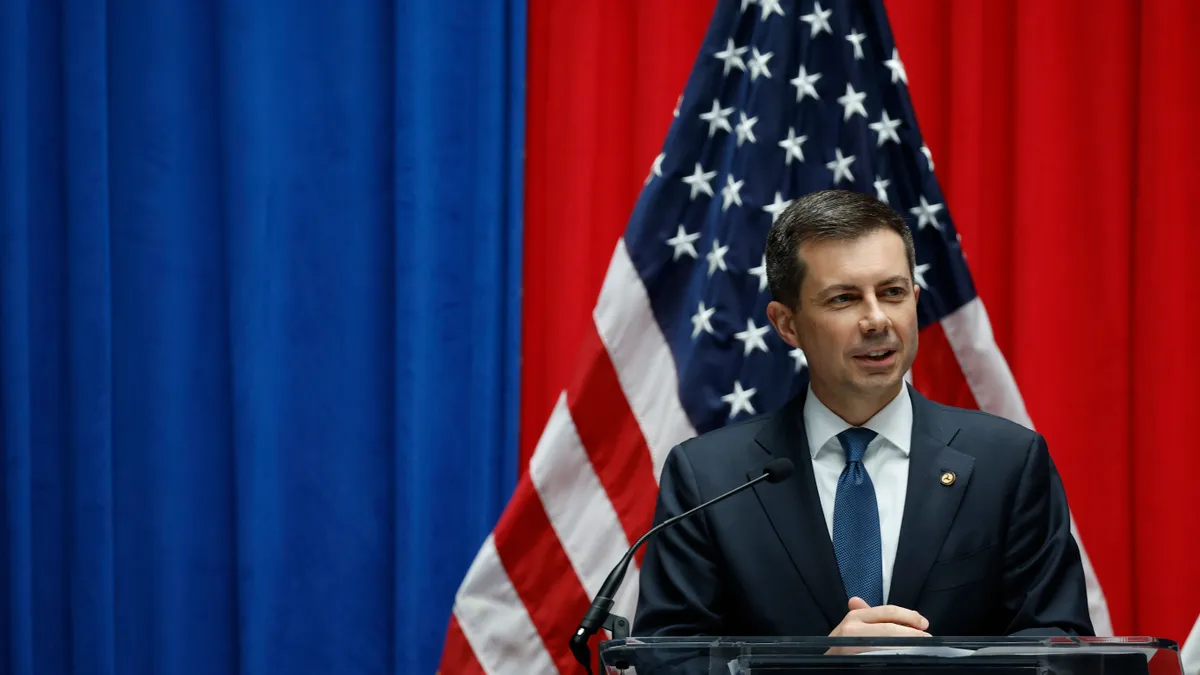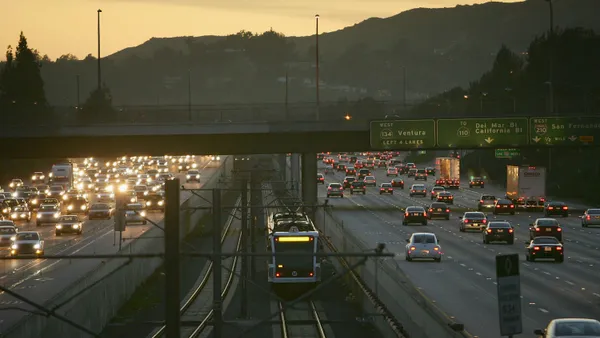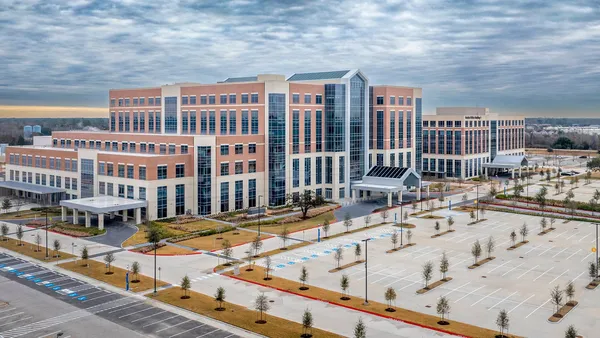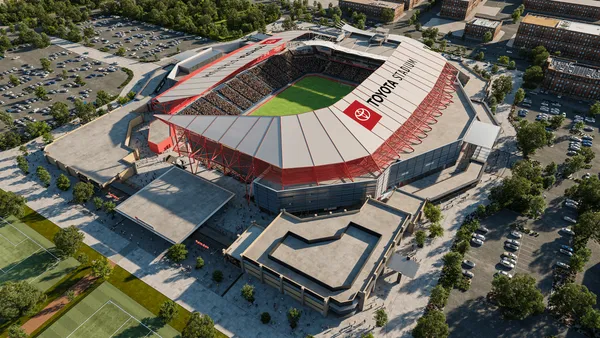Dive Brief:
- The Biden administration made a series of transportation funding announcements in recent days, beginning Monday when Transportation Secretary Pete Buttigieg recommended that 14 large transit projects in 11 states receive nearly $4 billion in President Joe Biden’s fiscal year 2025 budget request to Congress.
- On Tuesday, the Federal Highway Administration began accepting applications for $1.2 billion in funding to reduce air pollution and greenhouse gas emissions through the Low Carbon Transportation Materials program, which the Inflation Reduction Act established.
- The U.S. Department of Transportation followed Wednesday by awarding $3.3 billion to 132 projects through the Reconnecting Communities Pilot and Neighborhood Access and Equity discretionary grant programs.
Dive Insight:
While the FHWA and DOT programs are funded under current appropriations, the $4 billion transit funding recommendation is subject to future congressional budget negotiations. That funding is part of President Biden’s $7.3 trillion FY25 budget request, of which $109.3 billion would go to the DOT. The department recommended seven projects to receive capital investment grants for the first time:
- $263.7 million for commuter rail service between downtown Miami and the city of Aventura, Florida.
- $138.3 million for the North-South Bus Rapid Transit project in Chapel Hill, North Carolina, which will connect riders to activity and job centers.
- $134.7 million for VIA Metropolitan Transit to provide bus rapid transit connecting the Alamo, San Antonio Riverwalk, University of Texas San Antonio downtown campus and downtown San Antonio.
- $500 million for the Transbay Downtown Extension project, which will extend Caltrain commuter rail service to the Salesforce Transit Center in central San Francisco.
Other recommended projects include $315.7 million for the Westside Purple Line extension in Los Angeles, $496.8 million for the Second Avenue Subway Phase 2 project in New York City, and $350 million for the Red Line extension project in Chicago. The recommendations also include $700 million for the Hudson Tunnel project serving New Jersey Transit and Amtrak trains.
Low Carbon Transportation Materials program
This program will be funded in two tranches, with the first $1.2 billion available to states, the District of Columbia and Puerto Rico for projects that use low-embodied-carbon materials and products to lower pollution and carbon emissions. Later this year, the FHWA will make $800 million available to cities, tribes, metropolitan planning organizations and other agencies.
In addition to funding cleaner construction materials for transportation projects, funds can be used to develop specifications for low-embodied-carbon materials that ensure adequate engineering performance on projects that receive federal aid. The program will also offer agencies resources to coordinate with the private sector in measuring the emissions of construction materials.
Reconnecting Communities Pilot and Neighborhood Access and Equity program
Awards announced in this round include 72 planning grants, 52 capital construction grants and eight regional planning grants. Examples include $50 million for a multiuse trail to connect the Atlanta BeltLine — a 22-mile trail linking neighborhoods — with new trails along the Flint River in Georgia. Philadelphia’s Chinatown Stitch project will get $158.9 million to complete the first phase of design and construction work to cap the Vine Street Expressway, reconnecting the divided historic neighborhood.















